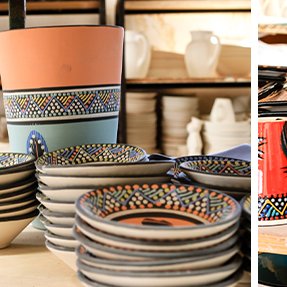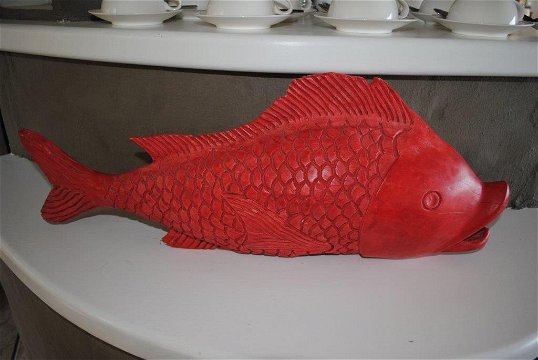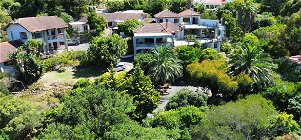Clay Cafe - Hout Bay

Clay Cafe
The Clay Cafe is a family run business founded in 1999. We have recently moved to a brand new home! This 2.5 acre piece of land is situated in the heart of the valley of Hout Bay. With a large open patio every table is close to the luscious garden and every child is ecstatic with our innovative playground. We have beautiful peaceful outside tables, as well as a veggie garden and our own African chic’ boutique. The Clay Cafe is an ideal day out for a ‘one of a kind’ creative experience. We offer adult and children’s parties (4 years and up), school outings, hen parties and team buildings and of course a delicious menu. All bookings 10 people or less can easily be booked online, hassle free. See below for our services.
Each person is given the chance to indulge in their own personal ceramic masterpiece while they sit back, relax and let us do the rest. We make all our food fresh from scratch everyday, so food is served when ready and is always a hit! We also pick fresh produce from our veggie garden to add into our salads and wraps..
We are also a great children's party venue
Find Us: Clay Cafe, 4080 Main Road. Opposite
Bokkemanskloof Estate, Hout Bay, Cape Town.
We are also a great children's party venue
Phone: 076 810 5120
Email: info@claycafe.co.za
How It’s Made
This is step one of the process: we manufacture our own clay in big steel drums called blungers, in a liquid form. This ensures that all of the different ingredients are broken down and are thoroughly mixed together. This process takes up to 6 hours. (FYI: We make everything in house, right here in Hout Bay).
Once the clay is mixed we sieve the clay and pump it at 7 bar into a filter press. This machine uses filtration cloths on specially designed plates to extract the water from the clay, leaving behind dry clay that can be used for production
The dry clay is used in these machines called Jigger and Jolly Machines to produce round items. The mould is rotated with the clay inside while a machine operator brings down a cutting tool to form the shape of the item.
The items that are not round have to be produced in a method called slip casting. The clay is kept in a liquid form and is poured into the mould, with the water being extracted from the clay into the plaster of paris. This is a very slow process and each mould can only produce 1 or 2 items a day.
Each item, once dry, still needs to go through a process called fettling. The moulds and tools all leave rough marks on the items which need to be removed and smoothed out. This is done by hand using a wet sponge and is a timely process
Once the fettling process is complete the items are put in a kiln to 1000’c. This makes the product strong enough to handle and paint. This is the stage of the process which the items are made available for the public to paint; this is now called raw bisque.
Once the painting is complete the items still need to go into the kiln twice. The first firing burns off any crayon, stickers and masking tape, as well as hardening the paint onto ceramic item to ensure a smooth and even glaze.
The second firing is also to 1000’C. The items are then dipped in a liquid white glaze which after being fired to 1220’C becomes clear and encases the painting and ensures it will last forever. When the glaze melts so does the ceramic item; this causes it to shrink by approximately 13%, in doing so any air gaps in the item will close up and the item will not absorb any water.
End product: This means that all items are microwave, oven and dishwasher safe! Want to find out more, ask one of the owners and arrange a factory tour




Share This Post